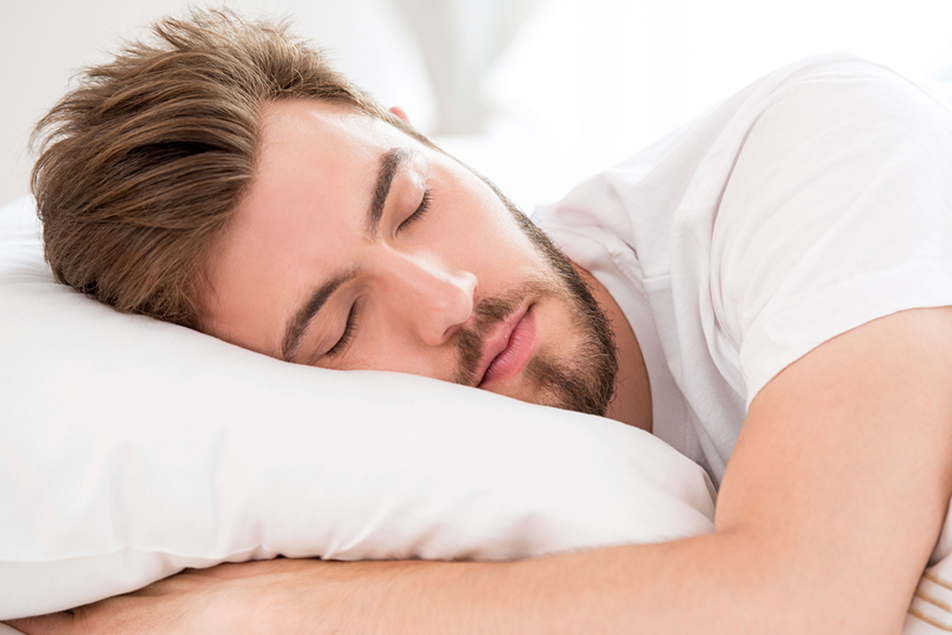
As a society we are in serious need of a good night’s sleep. It’s estimated that as many as 40 percent of the population are not getting an adequate amount of sleep at night. Not only can this lead to embarrassing yawns during the afternoon meeting, it is also dangerous. This insufficient sleep has been linked to driving accidents and an increased risk of chronic diseases like obesity, diabetes and heart disease. Edmund Gervais, physical therapist, Parkview Therapy ONE, took a few moments to answer our questions about ideal sleep positions and accessories to ensure a better night’s rest and sweet (healthy) dreams.
Which sleeping position is best? Which is worst?
Sleeping on your back is generally considered the best position for most conditions. Sleeping on your stomach is very cumbersome for your cervical spine, shoulders and your lumbar spine, as is sleeping balled up in the fetal position. Side sleeping can be comfortable and good for some, but not everyone.
Which position would you recommend for people with back pain?
Most back pain patients prefer to sleep on their back with support under their knees to assist with maintaining spinal neutral.
Many people sleep with their arm under their head. Are there any concerns with that?
If you bring your arm under your head to sleep, you close down the space for your shoulder to naturally rest. By approximating these tissues we sleep in an impingement position, which can lead to increased shoulder pain.
How does our pillow impact alignment and what are some tips for selecting the best option?
Your pillow impacts sleep on many levels. First, you have to determine which sleep position is most comfortable for you. Back sleepers need a medium/moderate firmness pillow. If you sleep on your back you do not want too much flexion/lift for the neck or a pillow that’s too flat, since that can make the cervical spine extended. Side sleepers benefit from a moderate to firm pillow, which allows for filling the space between the mattress and head created by laying on your shoulder. Lastly, stomach sleepers (which is, again, not recommended) should choose a soft/thinner pillow to allow for optimum posture for the neck.
Is there a certain kind of mattress you recommend?
Mattress selection is probably the most important choice for getting a good night's sleep. Many companies now have pressure testing for height, weight, sleep position preference as well as many customizations for firmness, height of head of bed and height of foot of bed. Choice of mattress is case-by-case, and people should seek the assistance of a professional to achieve optimum benefit.
How can we train ourselves to sleep in a healthier position?
Much like any other habit, it is difficult to change sleeping habits/patterns. That’s why people have a hard time sleeping away from the comfort of their own home. Training our body just takes time, patience, and a clear understanding that changing sleep habits can help you overall in the long run.
Are there any other physical conditions that interfere with quality sleep?
Overall health can greatly affect your sleeping posture/position. A person who is overweight might find it difficult to lie on their back since their weight can make it more challenging to breathe. Those with asthma or GERD might have trouble lying flat on their back, so supporting the upper back and shoulder can be beneficial. Overall healthy eating habits, weight loss and consistent exercise have been known to assist people in the pursuit of better sleep. Keep in mind, everything we do to and with our body impacts how we feel. There needs to be harmony with our minds, body and relationships.
For more from the team at Parkview Therapy ONE, or to schedule an appointment, call (260) 266-7400.